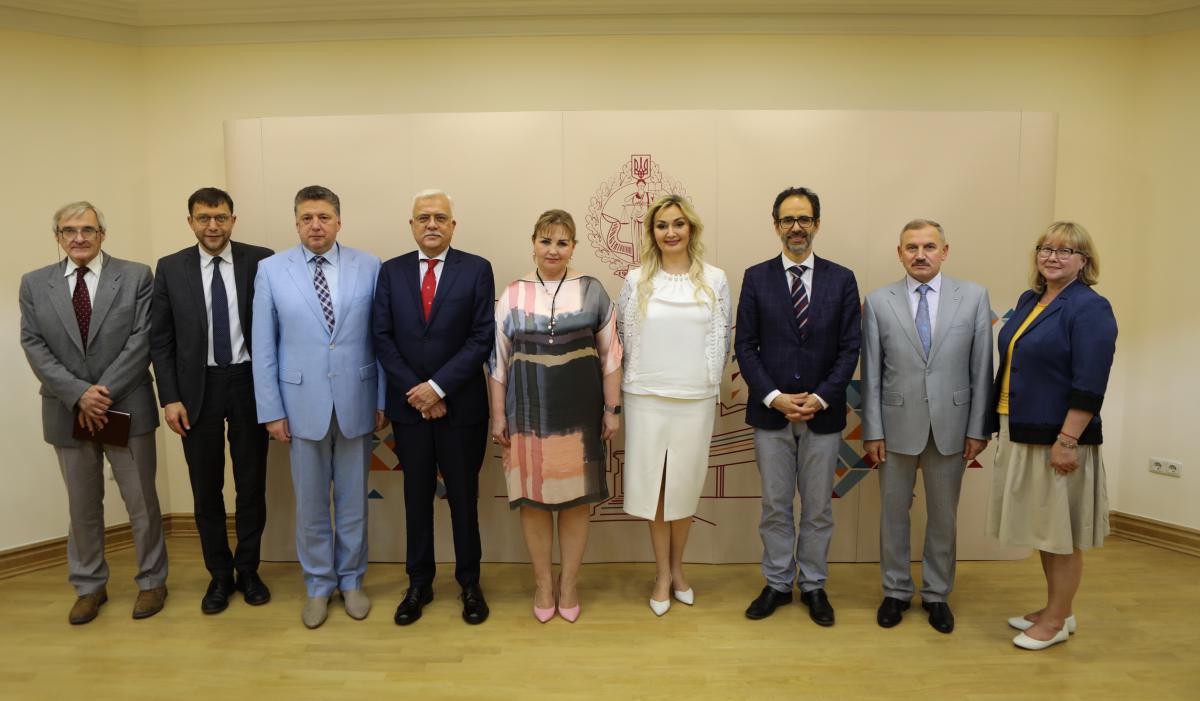Meeting of the Chairman and judges of the Constitutional Court of Ukraine with the judges of the European Court of Human Rights
On June 14, 2019, a working meeting of the Chairman and judges of the Constitutional Court of Ukraine with judges of the ECHR was held.
The event was attended by the ECHR judges Ganna Yudkivska, Paulo Pinto De Albuquerque, Yonko Grozev, Péter Paczolay; the Chairman of the Constitutional Court of Ukraine Natalia Shaptala, the judge of the Constitutional Court of Ukraine Viktor Horodovenko, the Head of the Court’s Secretariat Yaroslav Vasylkevych, the First Deputy Head of the Court’s Secretariat Larysa Biriuk, the Deputy Head of the Court’s Secretariat Yevhen Burlai.
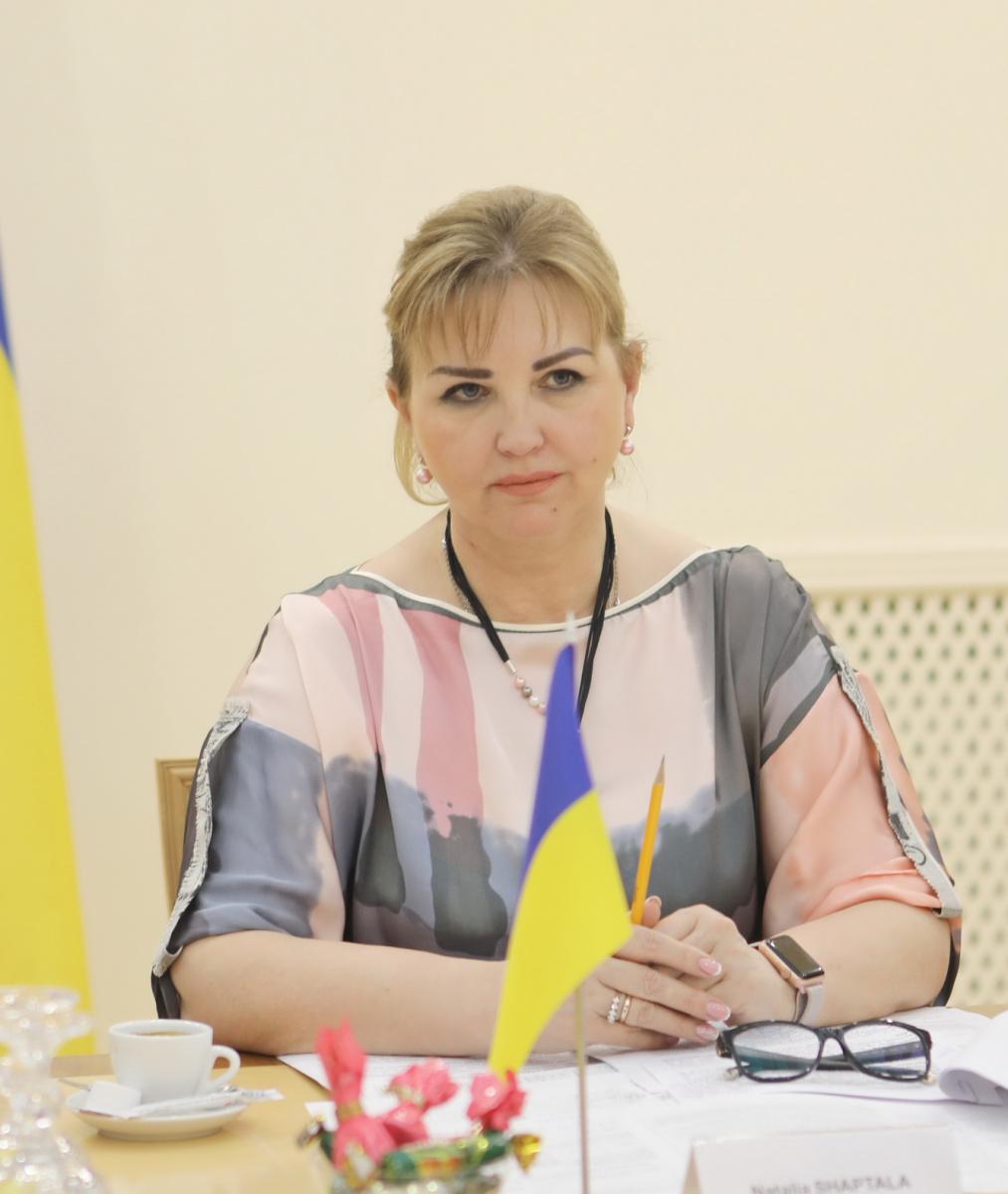 Chairman Shaptala welcomed the guests and noted that the Constitutional Court of Ukraine in its activity actively refers to the established practice and doctrinal approaches of the European Court of Human Rights. She noted similarities in the organisation of work of the Constitutional Court of Ukraine and that of the European Court of Human Rights and stressed the importance of sharing experience in the methodology of decision-making of these institutions.
Chairman Shaptala welcomed the guests and noted that the Constitutional Court of Ukraine in its activity actively refers to the established practice and doctrinal approaches of the European Court of Human Rights. She noted similarities in the organisation of work of the Constitutional Court of Ukraine and that of the European Court of Human Rights and stressed the importance of sharing experience in the methodology of decision-making of these institutions.
The Court’s Chairman noted that after the introduction of amendments to the Constitution of Ukraine (in the part of justice), an additional mechanism for the protection of human rights – the institution of constitutional complaint was introduced. She mentioned that since the introduction of the constitutional complaint institute in three years ago 1,520 constitutional complaints has been received by the Constitutional Court of Ukraine, most of which were returned to the complainants as not complying with the Law of Ukraine “On the Constitutional Court of Ukraine” as to the form. Natalia Shaptala noted that constitutional complaints are considered by the Senates of the Court, and in exceptional cases – by the Grand Chamber of the Constitutional Court.
Chairman Shaptala emphasised that the Constitutional Court of Ukraine had adopted five decisions on constitutional complaints, and provided some details as regards these decisions, in particular, the Decision upon the constitutional complaint of Viktor Hlushchenko on the compliance of the provisions of Article 392.2 of the Criminal Procedural Code with the Сonstitution of Ukraine (constitutionality). “The possibility of appeal and review by the court of appeal of the decision on detention, adopted by the court of first instance, seeks, first of all, to avoid arbitrary deprivation of liberty,” she emphasised.
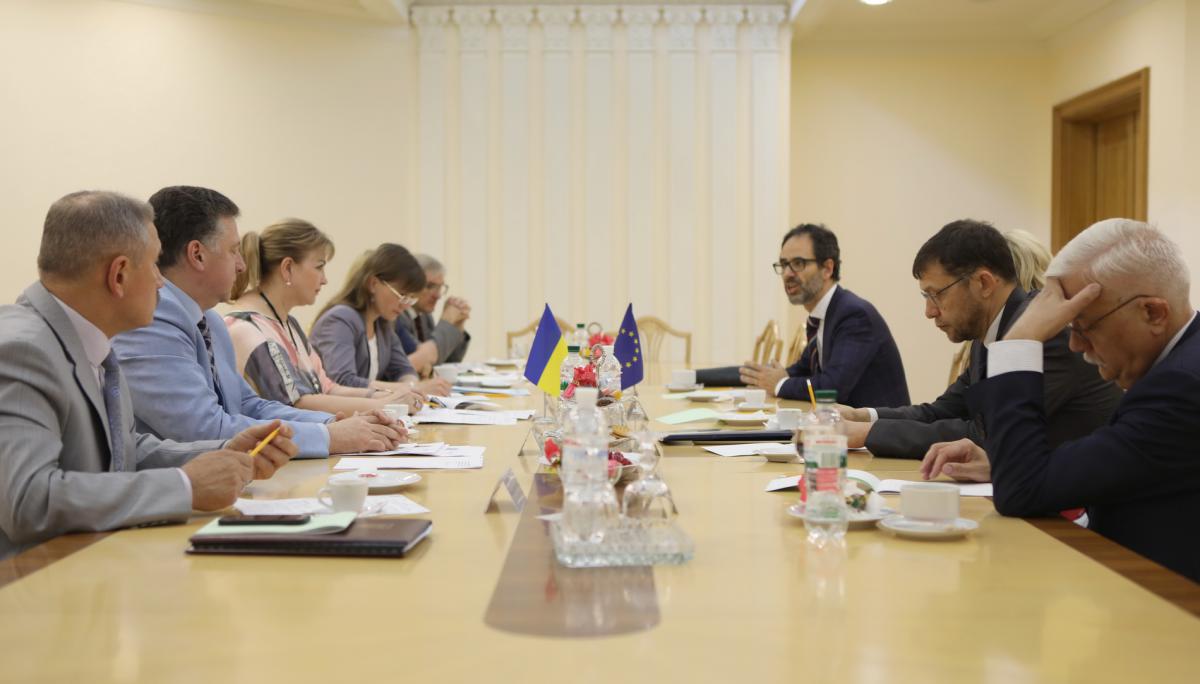 Natalia Shaptala noted that the Constitutional Court of Ukraine in its acts widely applies the case-law of the European Court of Human Rights, adopted not only in respect to Ukraine, but also to other countries. The Constitutional Court of Ukraine has proclaimed the principle of friendly attitude to international law as an element of the general methodology for forming its position in one or another case. According to the Chairman of the Constitutional Court, another manifestation of the mentioned methodological approach in the practice of the Constitutional Court of Ukraine can be considered amicus curiae, a competent subject in complex legal issues, which provides professional assistance on the basis of the said “friendly attitude”. Such practice not only allows to raise the level of the quality of the acts of the Court through the use of intellectual heritage in the field of law, but also promotes the development of professional dialogue between lawyers from different countries who represent different national legal systems, but ultimately have to resolve the same issue, i.e. the protection of human rights on the basis of the rule of law.
Natalia Shaptala noted that the Constitutional Court of Ukraine in its acts widely applies the case-law of the European Court of Human Rights, adopted not only in respect to Ukraine, but also to other countries. The Constitutional Court of Ukraine has proclaimed the principle of friendly attitude to international law as an element of the general methodology for forming its position in one or another case. According to the Chairman of the Constitutional Court, another manifestation of the mentioned methodological approach in the practice of the Constitutional Court of Ukraine can be considered amicus curiae, a competent subject in complex legal issues, which provides professional assistance on the basis of the said “friendly attitude”. Such practice not only allows to raise the level of the quality of the acts of the Court through the use of intellectual heritage in the field of law, but also promotes the development of professional dialogue between lawyers from different countries who represent different national legal systems, but ultimately have to resolve the same issue, i.e. the protection of human rights on the basis of the rule of law.
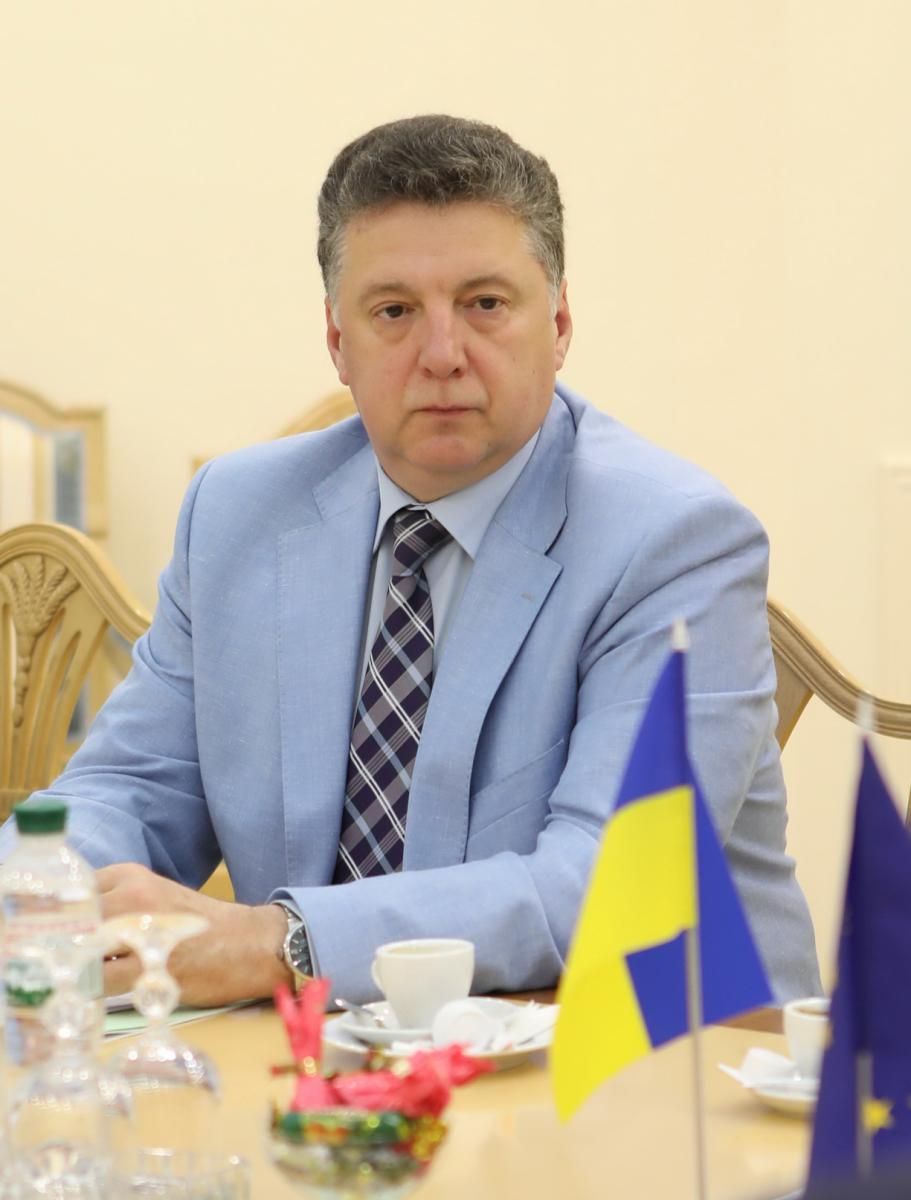 The judge of the Constitutional Court of Ukraine Viktor Horodovenko noted that the Constitutional Court of Ukraine and the European Court of Human Rights are united by one thing – the protection of human rights. “In our decisions, we apply the research methodology used in the ECHR”, he added. The judge stressed the importance of consolidating the culture of human rights in society.
The judge of the Constitutional Court of Ukraine Viktor Horodovenko noted that the Constitutional Court of Ukraine and the European Court of Human Rights are united by one thing – the protection of human rights. “In our decisions, we apply the research methodology used in the ECHR”, he added. The judge stressed the importance of consolidating the culture of human rights in society.
Viktor Horodovenko also noted the important contribution to the protection of human rights in Ukraine, made by the judge of the European Court of Human Rights in respect of Ukraine Ganna Yudkivska.
Judges of the European Court of Human Rights upheld the thesis of the Viktor Horodovenko regarding the extraordinary contribution of Ganna Yudkivska in the formation of both respect for European values and the European Court of Human Rights in general.
The judges of the ECHR noted that the introduction of the constitutional complaint institute is a big step, yet, in their opinion, this mechanism is still not very popular in Ukraine. “Citizens are not very aware of the constitutional complaint and do not know how to use it”, pointed out Ganna Yudkivska. The judges of the ECHR agreed that the number of decisions on constitutional complaints did not make it possible to assert that this institution has already become an effective mechanism for the protection of human rights.
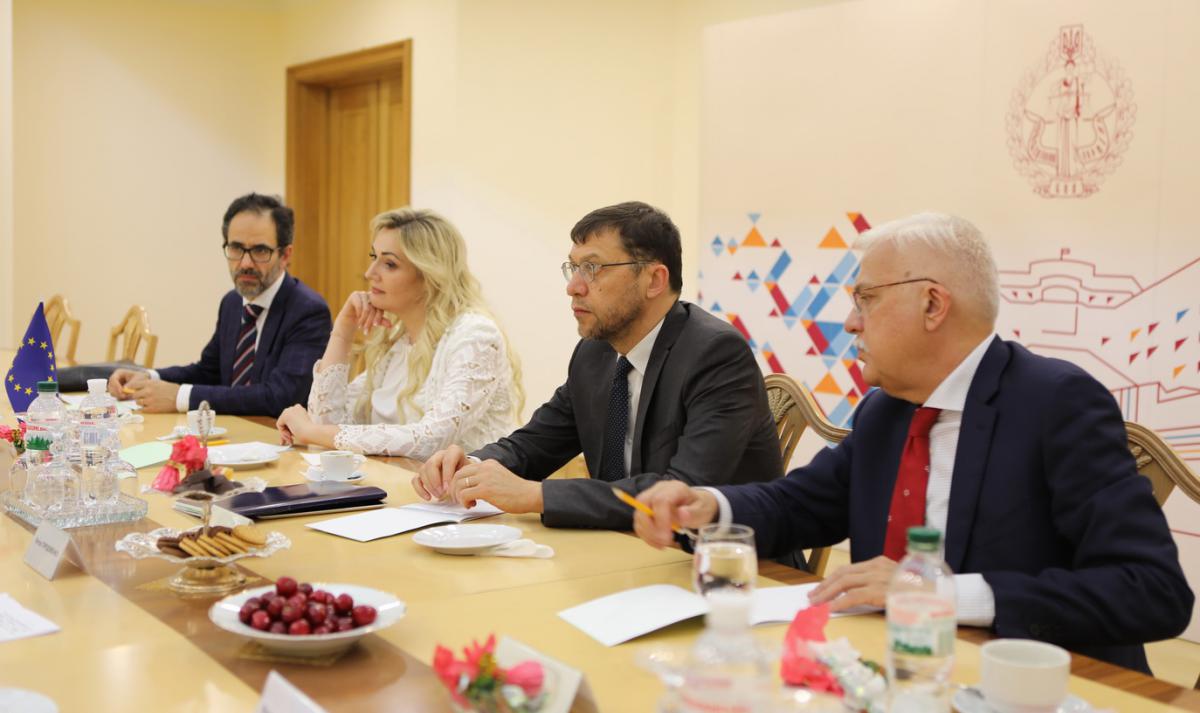 According to judges of the ECHR, the role of the European Court of Human Rights in the issue of constitutional complaints is subsidiary, but the main responsibility is still entrusted to the Constitutional Court. According to the judge Paulo Pinto De Albuquerque an extended interpretation of constitutional complaints will not only reduce the number of complaints, but make this mechanism really effective.
According to judges of the ECHR, the role of the European Court of Human Rights in the issue of constitutional complaints is subsidiary, but the main responsibility is still entrusted to the Constitutional Court. According to the judge Paulo Pinto De Albuquerque an extended interpretation of constitutional complaints will not only reduce the number of complaints, but make this mechanism really effective.
"The institute of constitutional complaint in Ukraine should become an effective instrument for the protection of human rights, which will be recognised by the European Court of Human Rights," noted judge of the ECHR Péter Paczolay.
Also, the judges of the ECHR welcomed the Decision of the Constitutional Court of Ukraine in the case upon the constitutional complaint of Viktor Hlushchenko on the compliance of the provisions of Article 392.2 of the Criminal Procedural Code with the Сonstitution of Ukraine (constitutionality).
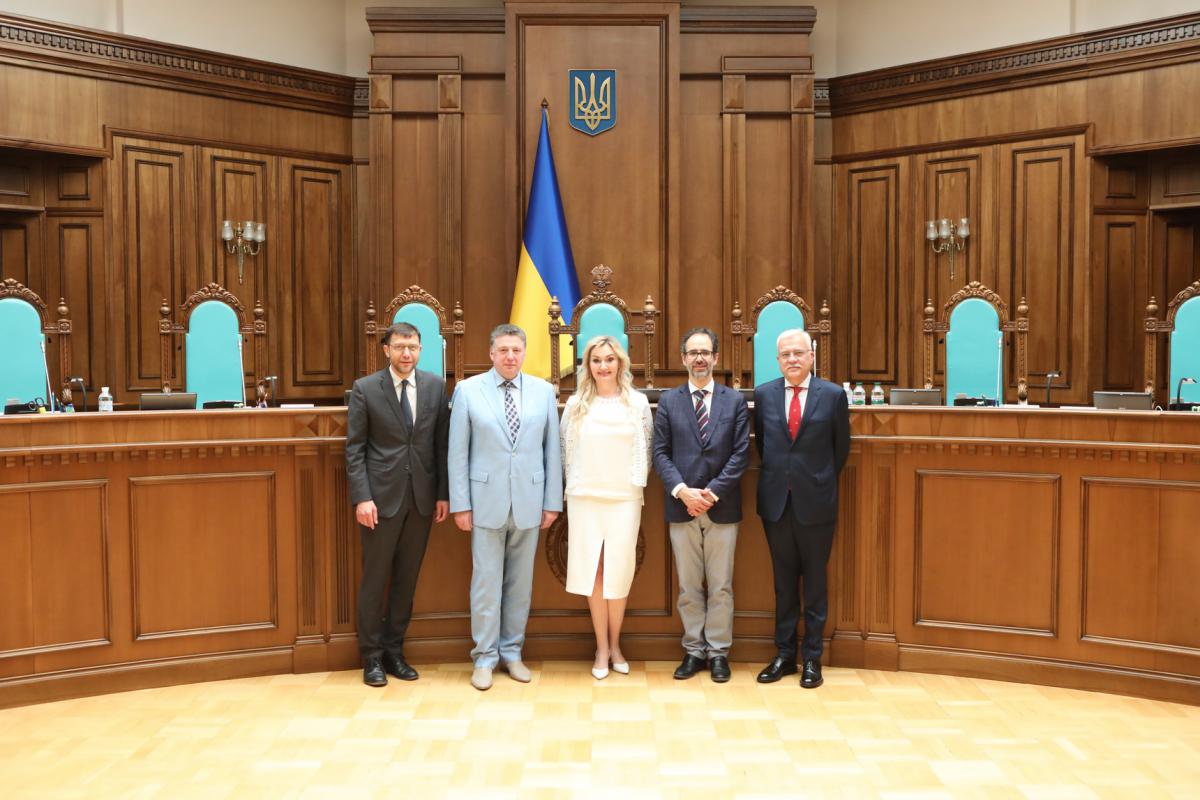 The judges of the ECHR have expressed their interest in the possibility of deepening cooperation between the Constitutional Court of Ukraine and the European Court of Human Rights. “The ECHR, along with the Council of Europe, is always open to communication”, highlighted judge Yonko Grozev.
The judges of the ECHR have expressed their interest in the possibility of deepening cooperation between the Constitutional Court of Ukraine and the European Court of Human Rights. “The ECHR, along with the Council of Europe, is always open to communication”, highlighted judge Yonko Grozev.
The parties discussed the importance of continuing the dialogue between the Constitutional Court of Ukraine and the European Court of Human Rights, in particular, in the framework of Protocol No. 14 to the Convention for the Protection of Human Rights and Fundamental Freedoms, which modifies the control system of the Convention, as well as other relevant issues of constitutional justice.

